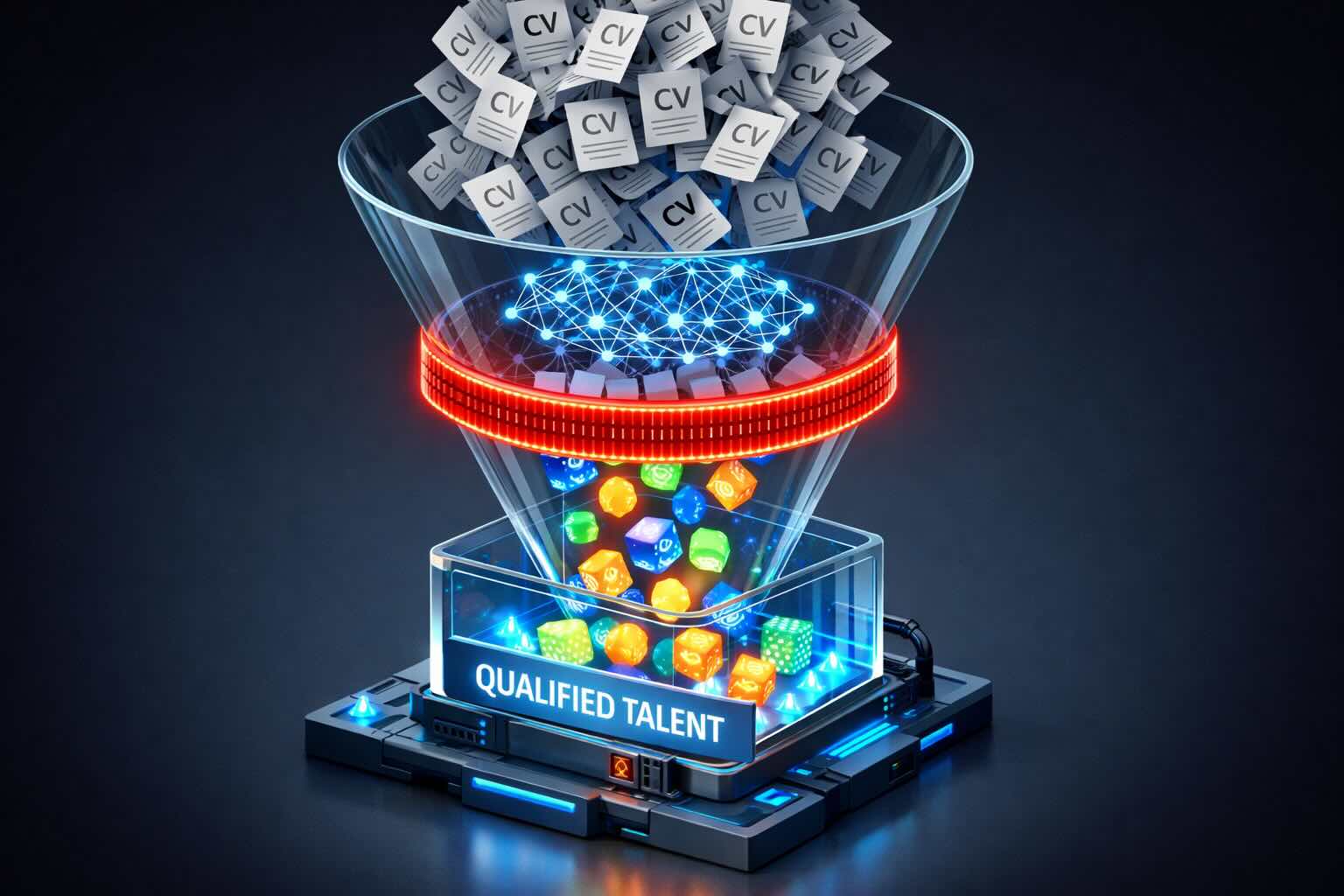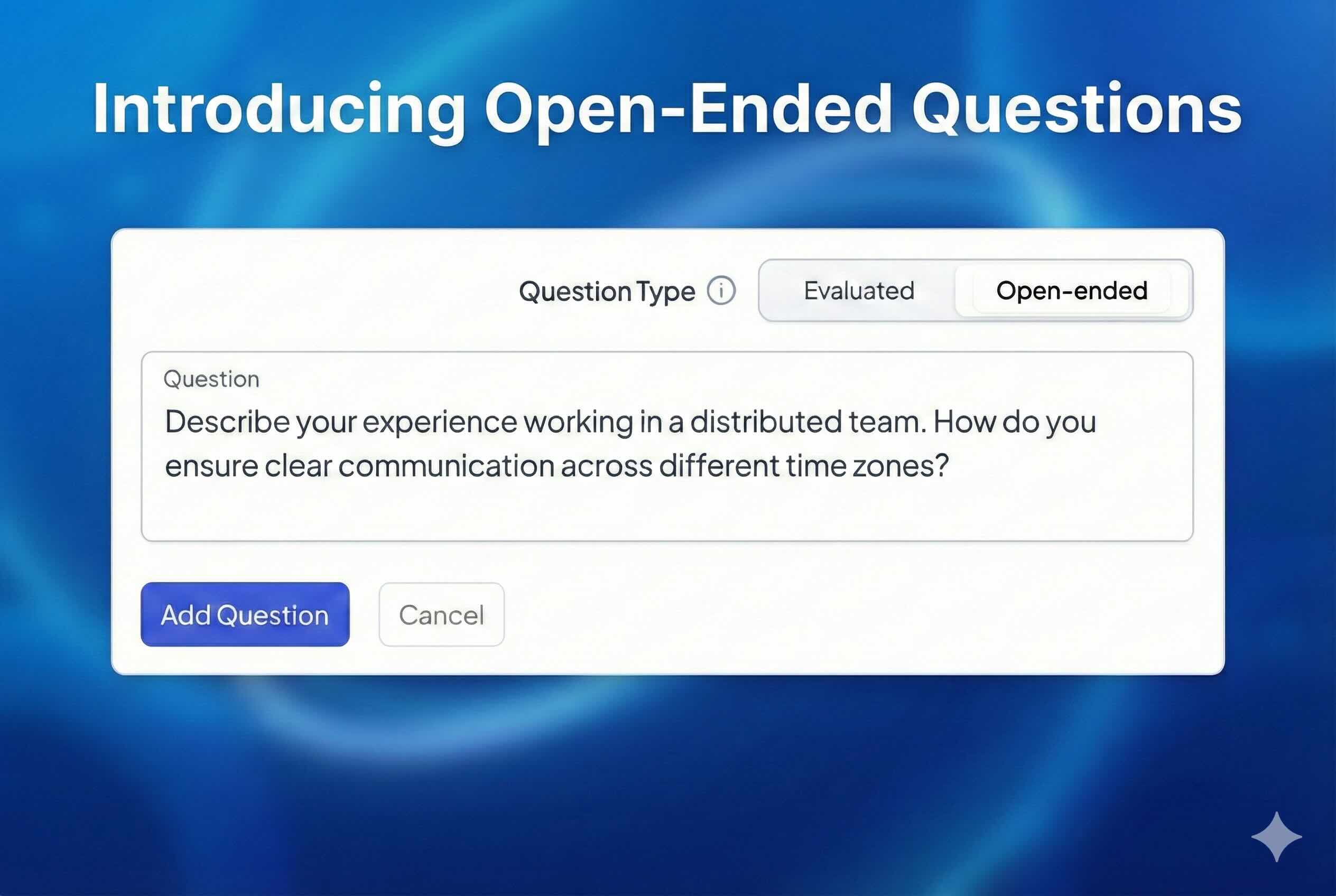
Is Your Hiring Process Obsolete? 5 Signs AI-Generated Applications Are Flooding Your Inbox
If you're a technical recruiter or hiring manager, you're likely feeling the pressure. The current job market is a paradox: more applicants are vying for fewer roles, yet finding qualified candidates feels harder than ever. A major reason for this is the rise of a new challenge quietly sabotaging your hiring funnel: the flood of AI-generated job applications.
Job seekers are now using AI to instantly generate tailored resumes and cover letters that perfectly match your job description's keywords. This makes traditional resume filters and manual screening far less effective. How can you separate genuinely skilled engineers from candidates who are simply skilled at using AI prompts?
The first step is learning to spot the signs. Here are five red flags that an application might have been written by a machine, not a human.
1. The Language is Flawless but Generic
AI is a master of mimicry. It can scan your job post and produce a cover letter that checks every box. The grammar is perfect, the keywords are all there, but it lacks something crucial: a human voice.
- What to look for: Look for paragraphs of professional-sounding text that don't offer a unique perspective. The language is often overly formal and lacks personal anecdotes or passion. If an application feels like it could have been submitted for any similar role at any other company, it's a potential red flag.
2. Accomplishments are Listed, Not Explained
A strong candidate doesn't just list what they did; they explain the impact of their work. AI can generate a plausible-sounding list of responsibilities for a "Senior Java Developer," but it struggles to invent the specific, nuanced stories that come from real experience.
- What to look for: Be wary of resumes that list impressive skills or project titles but provide no context. Where are the metrics? Where are the stories about overcoming a specific technical challenge or collaborating with a team to solve a complex problem? A lack of depth is a key sign of automation.
3. There are Inconsistencies Across Platforms
A candidate’s professional identity should be consistent. When applicants use AI to generate a one-off resume for your specific job post, they often forget to update their other professional profiles.
- What to look for: Open the candidate's LinkedIn profile or GitHub repository alongside their resume. Do the project descriptions match? Are the timelines consistent? Small discrepancies can reveal that the resume was a specially crafted, AI-generated document rather than a true reflection of their career history.
4. Project Descriptions are Full of Buzzwords, Not Substance
AI models are trained on vast amounts of text from the internet, and they are excellent at stringing together impressive-sounding technical jargon. However, this often results in project descriptions that are a mile wide and an inch deep.
- What to look for: A human engineer will describe a project with a focus on architecture, trade-offs, and outcomes. An AI might generate a description like: "Leveraged microservices architecture and containerization to build a scalable cloud-native application." This sounds good but says nothing about why that architecture was chosen or the specific problems it solved. Look for the "how" and "why," not just the "what."
5. You Receive a Sudden Surge of "Perfect" Applications
Sophisticated job seekers are using tools that don't just write applications—they auto-apply to hundreds of positions at once. If you post a job and receive a dozen perfectly formatted, keyword-optimized applications in just a few hours, it may not be a sign of your job’s popularity, but of automation at work.
- What to look for: Pay attention to application timestamps and patterns. A high volume of suspiciously similar applications arriving in a short window is a strong indicator that you’re dealing with automated submissions.
Why This is More Than Just an Annoyance
Identifying these applications is crucial because it’s a symptom of a much larger problem. Candidates who use AI to get past your initial screen are often the same ones who will use AI co-pilots and other tools to cheat during interviews and on take-home coding tests.
Traditional solutions like take-home assignments are becoming useless as AI can solve most coding problems instantly. This increases the risk of false-positive hires, which can cost your company thousands in wasted salary, recruiting fees, and lost productivity.
Evolve Your Screening, Not Just Your Suspicions
If the resume and cover letter are no longer reliable signals, then the hiring process itself must change. The solution is to move true technical validation to the very beginning of the process.
The way developers work is changing. With AI generating code, the most important skill is no longer writing lines of code but having a strong conceptual understanding of systems design and technology fundamentals to effectively guide the AI. You need a screening method that tests this core knowledge.
This is where EvoHire comes in. EvoHire is an AI agent that conducts automated, scalable technical screenings over the phone or video. It asks candidates questions from a vetted question bank designed to test their conceptual understanding, not just their ability to regurgitate code. You receive a detailed report with transcripts, recordings, and an analysis of whether the candidate was likely cheating.
Stop drowning in unreliable applications. It's time to implement a screening process that identifies genuine engineering talent from the start.
Learn more about how EvoHire can modernize your technical screening process
Ready to Accelerate Your Hiring Velocity?
Leverage AI agents to eliminate false-positive interviews and save valuable engineering time









